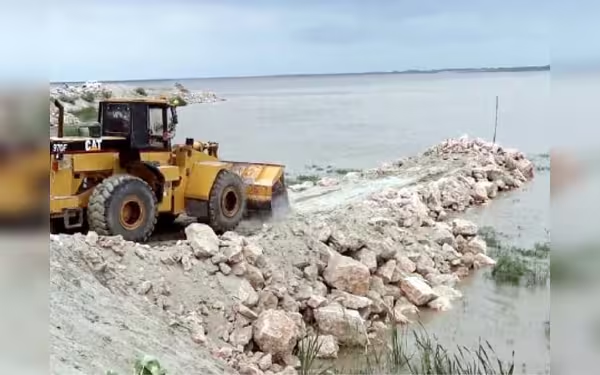Sunday, December 22, 2024 04:07 AM
Indus River Canal Construction Plan Faces Backlash in Sindh
- Farmers protest against new canals on Indus River.
- Dr. Shahnawaz Kumbhar's death raises police accountability concerns.
- Water scarcity fears reignited among Sindh farmers.
 Image Credits: tribune.com.pk
Image Credits: tribune.com.pkFarmers in Sindh protest against canal construction on the Indus River, raising concerns over water scarcity and police accountability.
The construction of new canals on the Indus River has sparked significant controversy in Pakistan, particularly among local farmers and activists. The Indus River is a vital water source for agriculture in the region, and any changes to its flow can have far-reaching consequences. Recently, a march was organized to voice opposition to this canal construction plan, highlighting the concerns of those who depend on the river for their livelihoods.
During the march, participants also called for justice for Dr. Shahnawaz Kumbhar, a resident of Umerkot district, who was reportedly killed while in police custody. His death, along with the alleged desecration of his body, has raised serious questions about police conduct and accountability in the region. The march began at the old campus of Sindh University and concluded outside the press club, where demonstrators gathered to express their grievances.
The Anti-Canals Action Committee, which includes three prominent farmers' lobbying groups, played a crucial role in organizing the protest. On Saturday, they staged a sit-in outside the Hyderabad press club, firmly denouncing the proposed canal construction. The farmers argue that the new canals would divert essential water resources away from their fields, jeopardizing their crops and, ultimately, their livelihoods.
Farmers in Sindh have long been concerned about water management issues, and the proposed canals have reignited fears of water scarcity. Many believe that the government should prioritize existing water resources and address the needs of those who rely on the Indus River rather than pursuing new projects that could exacerbate the situation.
As the debate continues, it is essential for policymakers to consider the voices of the farmers and the potential impact of their decisions on local communities. The Indus River is not just a waterway; it is a lifeline for many families in the region. Balancing development with the needs of the people is crucial for sustainable progress. The ongoing protests serve as a reminder that the voices of the affected communities must be heard and respected in any future planning regarding the Indus River.













